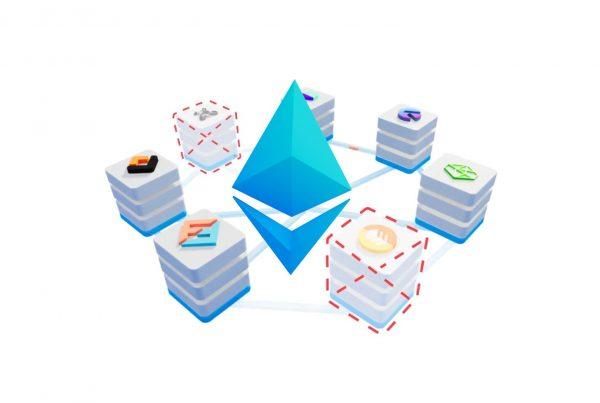
“If you tiptoe into cold water, you’re missing out on the rush of plunging in headfirst.”
– Simone Elkeles
Ah, the Fear of Missing Out (FOMO): there are few psychological forces so strong. Just because those who can see a classic FOMO situation, recognize it, and choose to not act on it, it doesn’t mean they don’t feel the pull of it, the regret of their choice, and the desire to change it. And the difficult truth we face is that sometimes FOMO can be valid, and we know we might kick ourselves for not acting (says everyone who didn’t invest in Bitcoin or Tesla stock early). But it can often be just as misleading, and those times we satisfy our FOMO we end up with good old fashioned Buyers Remorse.
The FOMO for digital lands—and the metaverse in general—is real. For crypto enthusiasts, this began well before Facebook announced its foray into the metaverse. For others, including companies, it is building and there is a growing need to take action. Like many FOMA’s before it, the current metaverse craze has a few telling traits: Many people have heard of it; over half really don’t understand what it is; and many of those people aren’t stopping their lack of knowledge from getting in the way of grabbing up digital land now while it’s possible to get a decent rate (since IRL land is so expensive in most places, this might be the only chance of land ownership many people get…).
But more and more publications are asking their readers to pump the brakes a bit before jumping in. There seems to be a realization that we may have seen these patterns before, and articles like this, this, this, and this all seem to have similar messages.
However, it’s interesting to point out that none of these articles say that digital land—or the metaverse itself—is just a passing fad. Quite the opposite, in fact. So how do we reconcile the concept of something creating a sense of FOMO, while at the same time being acknowledged as an inevitable future technology and social construct? Let’s dive into why this FOMO is occurring, what we can learn from similar FOMOs of the past, and what actions we might want to take this year.
The FOMO is natural, but unnecessary
First, and perhaps most importantly, it’s a good idea to recognize that the FOMO for the metaverse isn’t built as much on marketing as it is experience. Depending on your age, you have either studied or seen firsthand one of the greatest FOMOs in history: The Dot Com Boom (and subsequent bust). There are more than a few similarities here, though the two situations are far from identical. What makes the FOMO for the metaverse have real teeth is that we know how the Dot Com Boom panned out. Yes, many investments went bust. But not all of them. Some early investors made out with massive, life-changing returns. These are the examples we can feel in our bones when we think about the metaverse and owning digital land. If we can lean on the Dot Com as an example, we can also assume two key insights. First, there are developing companies in existence right now who are making value-added products for the metaverse that will change the industry. While some products are indeed just marketing hype, others will influence the industry with their innovations, and these products are the ones we all want to find and invest in now. However, the second insight is that some of the most influential platforms for the metaverse have yet to be developed. We truly don’t know what the matured metaverse will look like, and that evolution will take time to occur. This is both fascinating and terrifying, but is something we will be living with for a while.
The hype is similar to the 1997-1999 “Dot Com” craze
Another exercise that might help us to better understand the metaverse’s place in history is to study the similar elements of the Dot Com craze to see what happened to those who came out on top, those who lost everything, and why some platforms worked when others did not.
As stated above, no one could have predicted in 1999 the evolution of the internet. We can’t even call it the “final form” because it continues to evolve even now. The metaverse is the next logical step in the evolution that started from incredibly basic web pages; something that would have been a far flung science fiction at that time. Indeed, many of the use cases we are experiencing today could not have been envisioned then. Who in 1999 would have said that a global conflict in 2022 would rely more on internet platforms than it would traditional news outlets?
Another key to the Dot Com craze is that it was not random. The fact is, the bubble and subsequent burst happened because of FOMO, and because people wanted to invest in “the internet”, and not a particular business model. Those platforms that offered real value; those platforms, for example, that focused on digital music, mapping services, web engines, and email, were for the most part profitable, and those companies grew into today’s major players. Looking at today’s options, we can see a lot of specific games that may do well or may be forgotten entirely. We have other platforms that are completely self-contained, which in this context struggles to add value.
And we have unique offerings that have evolved to address these past mistakes and limitations. Bit.Country comes to mind, with their platform’s core value enabling users to create their own metaverses. Instead of offering a place in their metaverse, as many other platforms are planning, Bit.Country is developing a virtual landscape where each plot of land can be its own metaverse. The benefits to this are that the various metaverses are already connected (a problem stand-alone platforms will face as soon as they go live). Each land plot can be subdivided so smaller projects can band together and invest in a location, and the supply will be limited. This is absolutely critical as it ensures the investments each landowner makes are protected against dilution. The developing team will create an option to develop more land, but only if the governance votes for it, meaning that the owners of the land can collectively decide the platform’s future.
If you want to become an early investor in 2022, take your time and do your research
Based on this, you have two options. First, you could shrug off the metaverse and digital lands drive as a fad, and hold back until there is stability in the market. Second, you could learn from key Dot Com Boom lessons and decide that 2022 is your year to invest. Both options are respectable at this point, but if you are looking to invest in digital land, here are a few insights. If you plan to jump into digital land ownership in 2022, keep the following questions in mind:
- Will this platform still have a valid role five years from now? This is a bit difficult due to long term speculation, but if you can stretch your imagination a bit you should be able to see value in a potential investment in the next five years of evolution.
- Is this something that could more easily be done using current means? This one is more obvious, and needs to be considered heavily.
- A good value platform should provide three key things:
- Something that is either made possible or is enhanced by remote connections
- Something that is either made possible or is enhanced by immersive (AR, VR) technology
- Something that is special or unique in some way, that has a particular appeal
Looking Ahead
The conclusion to this analysis is clear, but may be uncomfortable to many. At the end of the day, it’s your decision on how you choose to address digital land and the universe at large. Some of you will make massive returns on your investments. Some of you will not do your homework and will fail to make informed investments, focusing on fad before function. But for those of you who are committed to the process, we recommend looking at the value added, finding those early platforms who offer it, and investing as you see fit. While FOMO elements will continue for some time, you now have some of the answers to your burning questions and can act in a way that best fits your lifestyle.



